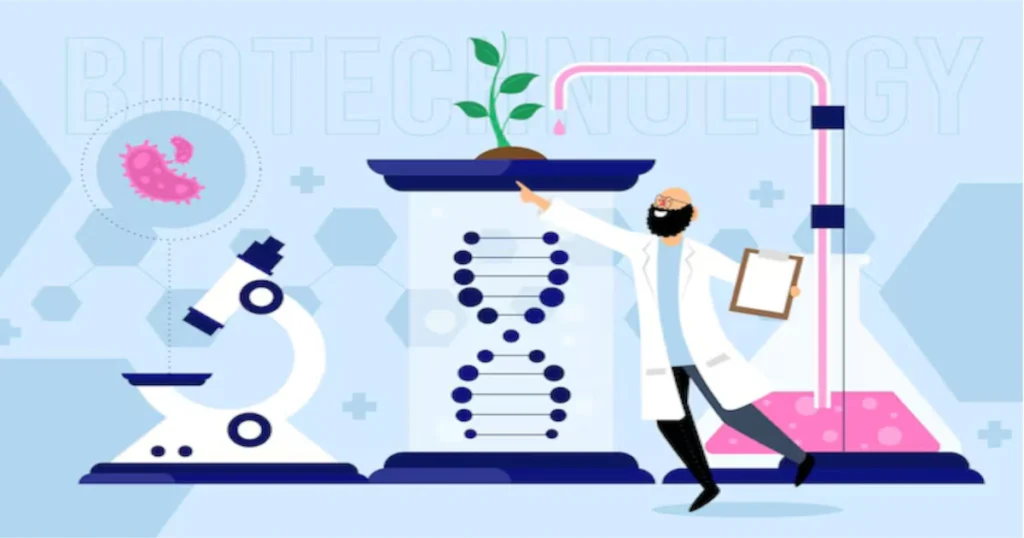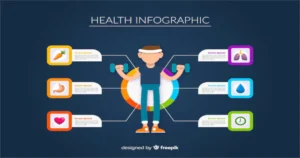What is Health Genetic Testing and How Does It Work?
Health genetic testing has become a powerful tool in the field of personalized medicine, providing individuals with insight into their genetic makeup and helping them make informed decisions about their health. As advancements in science and technology continue to progress, genetic testing is increasingly being used not only for diagnosing diseases but also for optimizing wellness, preventing potential health issues, and tailoring personalized healthcare plans.
In this comprehensive guide, we’ll explore the significance of health genetic testing, how it works, the benefits it offers, and how it can impact your overall well-being. We’ll also address common concerns, answer frequently asked questions, and highlight the future potential of genetic testing for healthcare.
What Is Health Genetic Testing?
Health genetic testing, also known as genetic screening, involves analyzing a person’s DNA to identify specific genetic variations that could affect their health. Unlike standard medical tests that assess current conditions, genetic testing looks at your genetic code, providing insights into your inherited traits, predispositions, and potential health risks.
Genetic testing can be done using a simple saliva sample or a blood test, which is then analyzed in a laboratory. The results can reveal a wide range of health-related information, including risks for certain diseases, response to medications, and even how well your body processes nutrients and exercise.
Types of Health Genetic Testing
There are various types of genetic tests available, each offering different insights into your health:
- Diagnostic Genetic Testing: This test is used to confirm or rule out a suspected genetic disorder. It’s often used in individuals who show symptoms of a genetic condition.
- Predictive and Presymptomatic Genetic Testing: These tests help identify the risk of developing specific diseases before symptoms appear. For example, testing for genetic markers that indicate a higher likelihood of developing conditions such as Alzheimer’s disease or breast cancer.
- Carrier Testing: This is done to determine if you carry a gene for a recessive inherited disorder, which may affect your children even if you don’t have the condition yourself.
- Pharmacogenomic Testing: This type of genetic test examines how your genes influence your response to certain medications. It helps doctors select the most effective drugs and dosage for you.
- Ancestry Testing: While not directly related to health, ancestry testing can provide insight into your genetic lineage and ethnic background, which can offer useful context when assessing health risks.
How Does Health Genetic Testing Work?
Health genetic testing generally follows a simple process:
- Sample Collection: The first step is to collect a sample, which is typically saliva or blood. In some cases, cheek swabs or other bodily fluids may be used.
- DNA Analysis: Once the sample is collected, it is sent to a laboratory, where advanced technology analyzes your DNA. This involves sequencing or examining specific genes associated with particular health conditions.
- Results Interpretation: After the analysis is completed, the results are interpreted by medical professionals or genetic counselors who can explain what the findings mean for your health and wellness.
- Actionable Insights: Based on the findings, you and your healthcare provider can create a personalized health plan. This could involve lifestyle changes, preventive measures, or even early interventions to minimize the risk of disease.
The Benefits of Health Genetic Testing
Health genetic testing offers numerous advantages for individuals who are looking to take charge of their health. Here are some key benefits:
1. Early Detection and Disease Prevention
One of the biggest advantages of genetic testing is its ability to detect potential health risks before symptoms even arise. By identifying genetic markers that indicate an increased likelihood of developing conditions like heart disease, diabetes, or certain cancers, you can take proactive steps to prevent or delay the onset of these diseases.
For example, if you have a genetic predisposition to a higher cholesterol level or hypertension, early genetic testing allows you to implement lifestyle changes like diet and exercise to mitigate the risk. In some cases, healthcare providers may recommend regular screenings or even preventative treatments based on your genetic profile.
2. Personalized Healthcare Plans
Health genetic testing can help create a more personalized approach to healthcare. By understanding how your body responds to certain medications, for example, your doctor can prescribe treatments that are more effective and have fewer side effects.
Similarly, genetic testing can identify how your body metabolizes nutrients, allowing for a tailored diet plan. Whether you’re sensitive to certain foods or have a predisposition to nutrient deficiencies, genetic testing provides the insights needed to optimize your nutrition and overall health.
3. Improved Family Planning
Genetic testing can be valuable for individuals who are planning to start a family. Carrier testing can help identify genetic conditions that you and your partner might unknowingly carry, giving you the opportunity to make informed decisions about family planning.
For example, if both parents are carriers of a recessive genetic disorder, they may choose to explore options like genetic counseling or IVF with genetic screening to reduce the risk of passing the condition onto their children.
4. Tailored Fitness and Wellness Plans
Genetic testing isn’t just about diagnosing health conditions – it can also be used to enhance your overall wellness. By understanding how your genes influence factors like metabolism, muscle composition, and endurance, you can develop a more effective exercise routine.
For instance, genetic testing can help determine if you’re more likely to excel in endurance sports or strength training. This knowledge enables you to customize your fitness regimen to match your natural abilities, helping you achieve optimal results.
5. Informed Lifestyle Choices
Knowing how your genetic makeup influences your risk for diseases can empower you to make better lifestyle choices. Whether it’s adjusting your diet to avoid foods that could trigger a genetic predisposition to certain health conditions or taking extra care in preventing skin damage due to a genetic sensitivity to UV rays, genetic testing helps you make decisions that improve long-term health outcomes.
Genetic Testing for Specific Health Risks
There are several common health conditions for which genetic testing can be especially useful. Some of these include:
1. Cancer Risks
Genetic tests like the BRCA1 and BRCA2 gene tests can identify mutations that increase the risk of breast and ovarian cancers. These tests have become particularly well-known due to high-profile cases like actress Angelina Jolie, who underwent a preventive mastectomy after learning that she carried a BRCA mutation.
Genetic testing can also identify increased risks for other cancers, such as colorectal, prostate, or pancreatic cancer, allowing individuals to take preventive measures or undergo more frequent screenings.
2. Cardiovascular Disease
Certain genetic variations are linked to an increased risk of heart disease, hypertension, and stroke. Genetic testing can identify individuals with these variants, allowing for early intervention through lifestyle changes, medication, or monitoring.
3. Neurological Disorders
Genetic testing can also identify individuals at higher risk for neurological conditions like Alzheimer’s disease, Parkinson’s disease, and Huntington’s disease. Early detection can help individuals plan for the future and consider preventive measures or treatments.
4. Metabolic Conditions
Genetic testing can identify susceptibility to metabolic conditions such as type 2 diabetes, obesity, or high cholesterol. Understanding these risks can lead to earlier intervention and preventive lifestyle changes, such as adopting a healthier diet and regular exercise.
Common Questions About Health Genetic Testing
Is Health Genetic Testing Safe?
Yes, health genetic testing is generally considered safe. The process of collecting a sample is non-invasive, and most tests involve only a saliva sample or a blood draw. There are no significant risks involved in undergoing genetic testing.
Are the Results of Genetic Tests Accurate?
The accuracy of genetic testing largely depends on the quality of the test and the laboratory performing the analysis. Most reputable genetic testing companies use advanced technology and adhere to strict standards to ensure accurate results. However, it’s important to remember that genetic testing provides probabilities, not certainties. Just because you have a genetic marker for a condition doesn’t necessarily mean you will develop that condition.
How Can I Use the Results of My Genetic Test?
Once you receive the results of your genetic test, it’s crucial to discuss them with a healthcare provider or genetic counselor. They can help you interpret the findings and develop a plan based on the information. This could involve preventive measures, lifestyle adjustments, or early interventions to reduce your risk of developing certain health conditions.
The Future of Health Genetic Testing
As genetic testing continues to evolve, it holds the potential to revolutionize healthcare. With the ability to predict diseases before they manifest, customize treatments, and personalize wellness plans, genetic testing could lead to a more proactive approach to health management.
In the future, we may see widespread use of genetic testing in routine healthcare settings, offering patients individualized care from a young age. Additionally, the integration of artificial intelligence and machine learning with genetic testing could further enhance the accuracy and predictability of health outcomes, allowing for even more tailored healthcare solutions.
Conclusion
Health genetic testing offers significant benefits, including early detection of health risks, personalized treatment plans, and improved overall wellness. While it’s not without its limitations, the potential for genetic testing to revolutionize healthcare is immense. By understanding your genetic makeup, you can take charge of your health and make informed decisions that promote longevity, disease prevention, and optimal health.
If you’re considering genetic testing, consult with your healthcare provider to determine the best options for you. As we continue to unlock the mysteries of our genetic code, health genetic testing will undoubtedly play an essential role in shaping the future of personalized healthcare.
Frequently Asked Questions (FAQs)
What is the purpose of health genetic testing?
Health genetic testing helps individuals understand their genetic predispositions to various health conditions. By analyzing DNA, this test can provide insights into the likelihood of developing diseases, how your body responds to medications, and your risk for certain inherited conditions. It’s a proactive tool that can guide personalized healthcare, helping to prevent or mitigate health issues before they arise.
How accurate are the results of genetic tests for health risks?
The accuracy of health genetic tests depends on several factors, including the quality of the testing process and the laboratory performing the analysis. Most reputable services use advanced technology to provide highly accurate results, but it’s important to note that genetic tests can indicate risks, not certainties. Having a genetic variant does not guarantee that you will develop the associated condition, but it does provide valuable information that can help inform decisions about preventive care and lifestyle adjustments.
Are genetic tests only useful for diagnosing diseases?
No, genetic tests are not just for diagnosing diseases. They are also valuable for preventive care, helping individuals identify risks for conditions they may not yet have symptoms for. Additionally, genetic testing can be used to personalize health and wellness plans by determining how an individual’s body processes nutrients, exercises, and responds to medications. It’s a tool that can enhance both overall health and lifestyle choices.
Can genetic testing help with personalized fitness and diet plans?
Yes, genetic testing can significantly enhance personalized fitness and diet plans. By understanding how your genetics influence factors like metabolism, muscle composition, and endurance, you can tailor your exercise routine and nutritional intake. For example, some people may be more predisposed to excel in endurance sports, while others may respond better to strength training. Genetic insights can help create a plan that aligns with your body’s natural tendencies for better health outcomes.
What are the risks of undergoing health genetic testing?
In general, health genetic testing is safe and non-invasive. However, there are some risks to consider. Psychological stress can occur if test results show a higher risk for a serious condition, and this may affect mental well-being. Additionally, there could be concerns about privacy and how genetic information is stored or used by companies. It’s important to choose a reputable genetic testing service and consult with a healthcare professional to discuss the potential emotional and ethical implications before undergoing testing.
How should I interpret the results of my health genetic test?
The results of a genetic test should always be discussed with a healthcare provider or a genetic counselor. These professionals can help you understand what the results mean in the context of your overall health. Genetic results often include probabilities, and they need to be considered alongside other factors, such as lifestyle, environment, and family history. A medical professional can guide you in making informed decisions about potential preventive measures, lifestyle changes, or screenings based on your genetic profile.
READ ALSO: Discover Mooresboro, NC: A Hidden Gem in the Heart of North Carolina





















